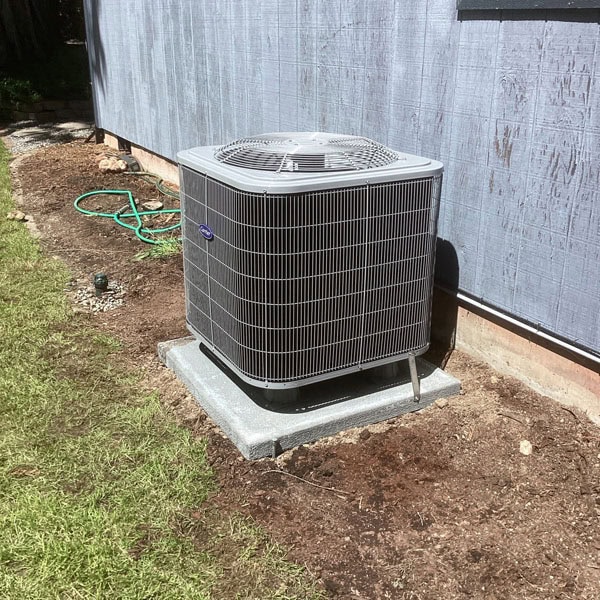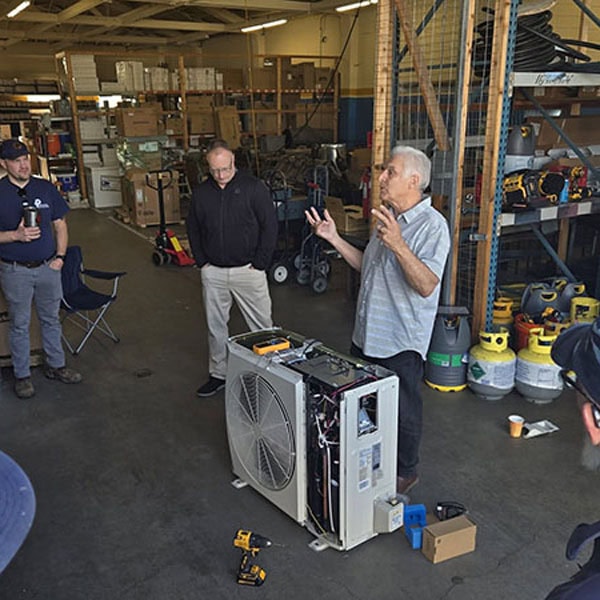HVAC Services in Puyallup, WA
Is your air conditioner or furnace acting up? Are you looking to upgrade your heating, ventilation, and air conditioning (HVAC) system?
Puyallup Heating & Air Conditioning can help with all your HVAC services in Puyallup, WA, and all the surrounding communities. Whether you need an air conditioning tune-up or electric heat pump repair, our licensed technicians will recommend the best solutions to keep your family safe and comfortable year-round.
Puyallup Heating & Air Conditioning offers prompt 24/7 emergency repair services to be there whenever you need us. Is your furnace blowing cold air? Is your AC making a strange noise? We promise to fix the problem right away!
We offer convenient financing options to improve the comfort in your Puyallup, WA, home. Our team will also inform you about available federal and local HVAC tax credits and rebates to make your purchase even more affordable!

Call today at (253) 845-0581 for expert HVAC services in Puyallup, WA.
Our Full Range of Services
Puyallup, WA, Heating and Air Conditioning Repairs
Our licensed technicians arrive in a company vehicle filled with parts, allowing us to address any HVAC repair promptly and professionally. We service and repair all major brands.
- Why is my HVAC system making strange noises?
Those odd noises could be clues that something is wrong with your equipment. It could be anything from a loose part to a clogged air filter. Our Puyallup Heating & Air Conditioning repair experts can fix minor issues before they turn into costly problems. - Should I repair or replace my equipment?
Repair your HVAC equipment if it is brand new or only a few years old. An exception to this rule is if the repair cost is too high—such as a cracked heat exchanger that is no longer under warranty. It may make more sense to purchase a new system, particularly if you want to upgrade your equipment.
At Puyallup Heating & Air Conditioning, we guarantee our repair work with a warranty. Call us today to fix your HVAC system.
HVAC Installation and Replacement Services
You can trust Puyallup Heating & Air Conditioning to install, repair, and maintain your heating and cooling equipment the right way so it runs quietly and efficiently.
- How much does a new HVAC system cost?
The price is determined by the size of the unit and the features. A variable-speed furnace, for example, costs more up-front but uses less energy to operate. You can trust Puyallup Heating & Air Conditioning to provide transparent pricing and quotes so you are educated and comfortable with any purchase decision you make. - When should I replace my HVAC system?
Well-maintained HVAC equipment can operate efficiently for 15 to 20 years before parts wear down and struggle to keep up. Are your energy bills increasing every year? Are your repair calls more frequent? New equipment reduces your carbon footprint and provides peace of mind.
Contact Puyallup Heating & Air Conditioning for Residential Services by calling us at (253) 845-0581 or book online now!
HVAC Maintenance Services
Puyallup Heating & Air Conditioning can tune up and restore your Puyallup, WA, heating and cooling equipment so you can enjoy it for years to come. We recommend a furnace tune-up in the early fall and an air conditioning tune-up in the spring.
- How often do I need to maintain my HVAC equipment?
Routine maintenance keeps your warranty valid. Maintenance also keeps regular and new construction HVAC equipment running as efficiently as possible, lowering your energy bills. It's like changing the oil in your vehicle. - What are the benefits of professional HVAC maintenance?
When you schedule an HVAC maintenance visit, your equipment will be inspected and cleaned. If there are problems, one of our Puyallup Heating & Air Conditioning professionals can diagnose and resolve them right away! According to the U.S. Department of Energy (DOE), you could save up to 30 percent on your energy expenses with regularly scheduled maintenance visits for your HVAC system. Maintenance will practically pay for itself!

Be sure to ask about our Preventative Maintenance Agreement that we tailor to fit your budget and equipment. Maintenance agreements are a worry-free way to ensure you care for your HVAC system and guard against costly repairs.
Schedule Heating and Air Conditioning Service Today With Puyallup Heating & Air Conditioning
Do you need a trusted company in Puyallup, WA, to install, service, or repair your HVAC equipment? Give Puyallup Heating & Air Conditioning a call for a free consultation. We're that hometown company that cares about your comfort. Call us today at (253) 845-0581 or request service online.
Customer Reviews
“I would highly recommend this company. My heater stopped working on the ductless system, and they showed up and quickly diagnosed the issue. The repair process went smoothly, and they were able to answer all my questions. To top it all off, they showed me all of the repairs made. I appreciated the quality of work that was done.”
“Puyallup Heating & A/C did an excellent job on my project. Thanks to Kevin M., Daniel K., Deven L., James G., Mark T., & Jason F.”

